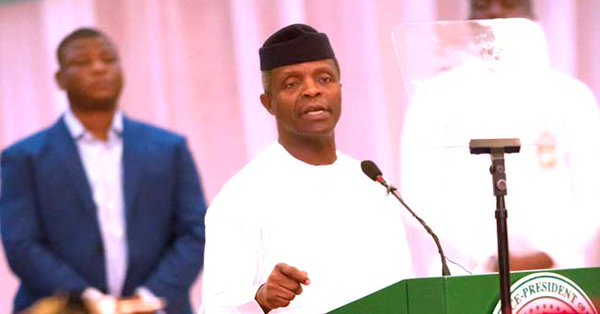Nigeria Federal Government says it is committed to addressing the challenges faced by Micro, Small, and Medium Enterprises (MSMEs) in the country, and as such, interact with entrepreneurs with relevant business regulations in form of clinic sessions.
Adeyemi Dipeolu, special adviser to the President on economic matters, said this in Abuja on Wednesday at the two-day Nationwide MSMEs Clinic for the FCT, tagged “Nationwide MSME Clinics for Viable Enterprises’’.
Dipeolu said the clinic was to address the challenges of MSMEs doing businesses in Nigeria, adding that similar clinics had been held in seven states, and therefore advised the participants to take the advantage of the clinic to discuss with government agencies in charge of business issues.

Dipeolu said that the clinic was to understand the challenges faced by MSMEs and also to create awareness on the standards of producing goods both for local consumption and exportation.
According to him, the MSMEs clinics is an initiative of the Presidency, aimed at addressing problems of enterprises across Nigeria.
Muhammed Arabi, the Managing Director, Abuja Enterprise Agency, said the clinic was not only bold but timely in view of the myriads of bottlenecks that MSMEs were encountering while starting up or growing.
Arabi said until the government started seeing itself as agent for the growth of the MSME sector, it could not realise the expected potentialities of providing the needed result of jobs creation and poverty reduction.
He said that the universal belief was that small and medium enterprise sector was a major driver of the economy.
Arabi said the convergence of all relevant ministries, departments, and agencies to give solutions to the problem, respond to inquiries and provide the needed information would definitely lead to the success of the initiative.
He said the country was lagging behind in spite of the MSME sector holding 96 per cent of the business sector in Nigeria compared to 53 per cent in the U.S. and 65 per cent in Europe.
Arabi added that with the employment capacity of about 33 million people, it only contributed 48 per cent of the Gross Domestic Product of Nigeria, compared to nations on the same status in Asia.
“We, therefore, owe this nation a duty and the MSME sector in particular, as stakeholders, to move from this poor status to catch up with the fast moving world.’’
At the interactive session, participants were quick to point out the lack of finance and that most banks demand impossible collateral.
Osita Nwanisobi, the Deputy Director, Development Finance Department, Central Bank of Nigeria (CBN), however, advised entrepreneurs to always pay back loans collected from banks.
Nwanisobi said most banks faced the challenges of people not returning the loans they borrowed to give other customers.
He said that CBN always sanctioned banks that failed to do the right things concerning loans for MSMEs.
“We monitor the commercial banks because there are guidelines for the interventions,’’ he said.
According to him, CBN is ready to provide avenues for upcoming entrepreneurs to easily access funds to either set up or expand their various enterprises.
“CBN is focused on enhancing capacity utilisation, increasing the output of goods and services, boosting job creation and increasing foreign exchange earnings,” he said.







